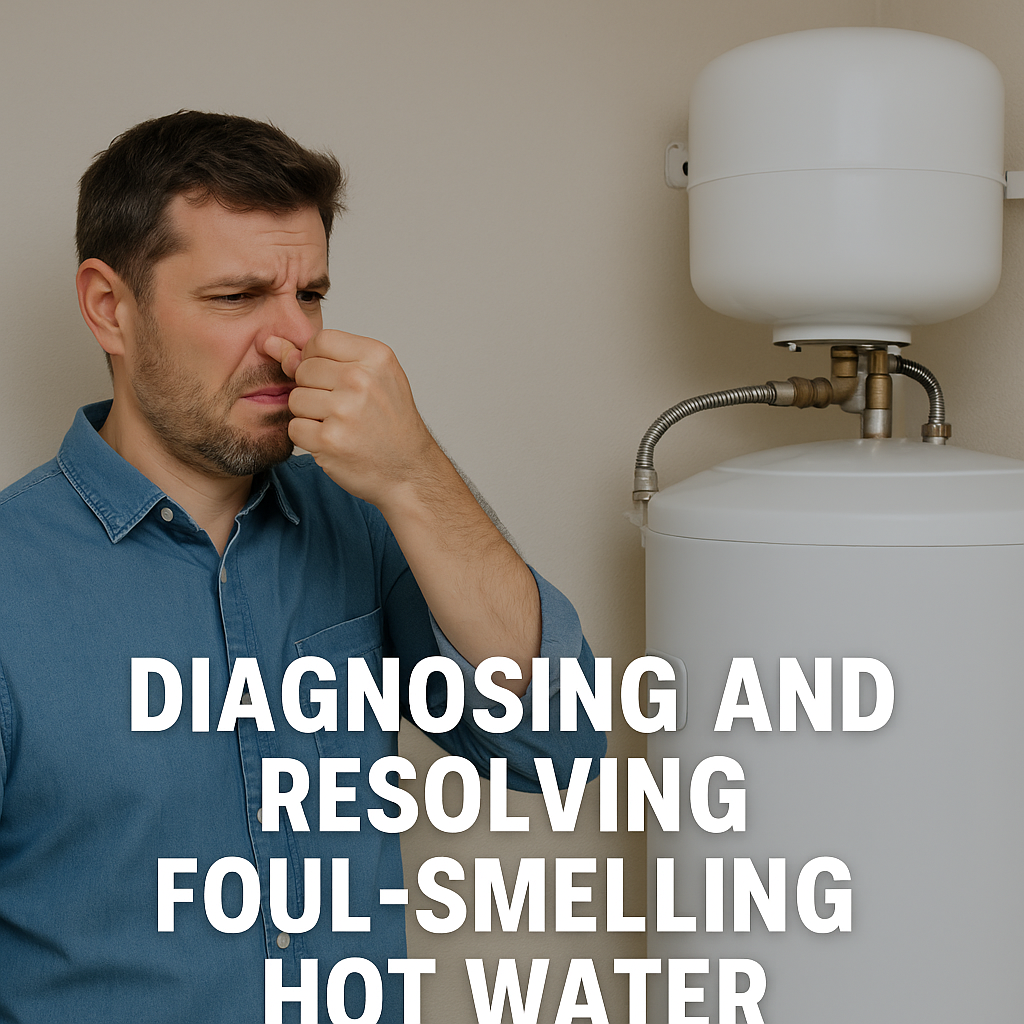- Serving Our NJ Neighbors 24/7 (888) 333-2422
Understanding the Causes of Foul-Smelling Hot Water

If your hot water smells like rotten eggs, sulfur, sewage, or metallic odors, you’re not alone—this is a common issue for many homeowners. The most frequent culprit is bacterial growth in your water heater tank, especially in homes using well water or those with high sulfur content in their water supply. These bacteria, while not necessarily harmful, interact with the anode rod inside the heater (usually made of magnesium or aluminum), producing hydrogen sulfide gas—a compound that smells like rotten eggs. Other potential causes include corroded plumbing, a decaying anode rod, or stagnant water that hasn’t been flushed in a while.
The smell often intensifies when only the hot water is affected and not the cold water, pointing to the water heater as the main source. This is especially likely if the odor is most noticeable first thing in the morning or after long periods of water inactivity. In rare cases, if both hot and cold water are affected, the issue may stem from the water supply itself, or bacterial contamination within plumbing lines. For homeowners on municipal water, it’s worth checking with your utility provider to rule out a broader issue. Understanding the cause is the first step to resolving the smell efficiently—and potentially saving on unnecessary repairs.
Step-by-Step Guide to Diagnosing the Problem
Before calling a plumber, there are a few simple diagnostic steps every homeowner can take. First, test whether the smell is coming from just the hot water or both hot and cold. Run faucets individually and note when the smell appears. If it’s only the hot water, turn your attention to the water heater tank. Next, try flushing the tank. Sediment buildup at the bottom can harbor bacteria and amplify odors. Flushing the tank with clean water helps remove these deposits and may immediately reduce or eliminate the smell.
If flushing doesn’t help, inspect or consider replacing the anode rod. This rod is a sacrificial component designed to corrode so your tank doesn’t. Over time, it wears out and can encourage bacterial growth. Replacing it with a zinc-alloy anode rod can dramatically reduce odor without sacrificing corrosion protection. In some cases, especially with well water systems, shock chlorination of the water heater and plumbing lines may be necessary to fully eliminate bacteria. However, this should be done carefully to avoid damage to plumbing fixtures. If you’re unsure, consult a licensed plumber with experience in water heater sanitation. Always ensure that your water heater is operating at 120–140°F; anything lower can encourage bacterial growth, while higher temperatures risk scalding.
Long-Term Solutions & Preventive Maintenance Tips
Once the smell is resolved, proactive maintenance can keep your hot water odor-free year-round. Schedule an annual water heater flush—especially important for households using well water or with high mineral content. If you’ve dealt with odors before, consider upgrading your anode rod permanently to a zinc-aluminum version, which is far less likely to react with bacteria. Installing a whole-home water filtration system or at least a sediment pre-filter can reduce the chance of bacterial or mineral contamination, particularly if you’re sourcing from a private well.
Additionally, adjust your water heater temperature to maintain bacteria-killing levels (around 130°F), and consider using a powered anode rod which lasts longer and minimizes hydrogen sulfide production. In areas with recurring issues, homeowners may opt for a tankless water heater, which reduces stagnant water conditions and minimizes bacteria buildup. Finally, always be alert to changes in water smell or color—these are early signs something is off and should prompt a system inspection. By staying on top of routine maintenance and making smart upgrades, you’ll enjoy clean, fresh hot water and peace of mind year-round.





